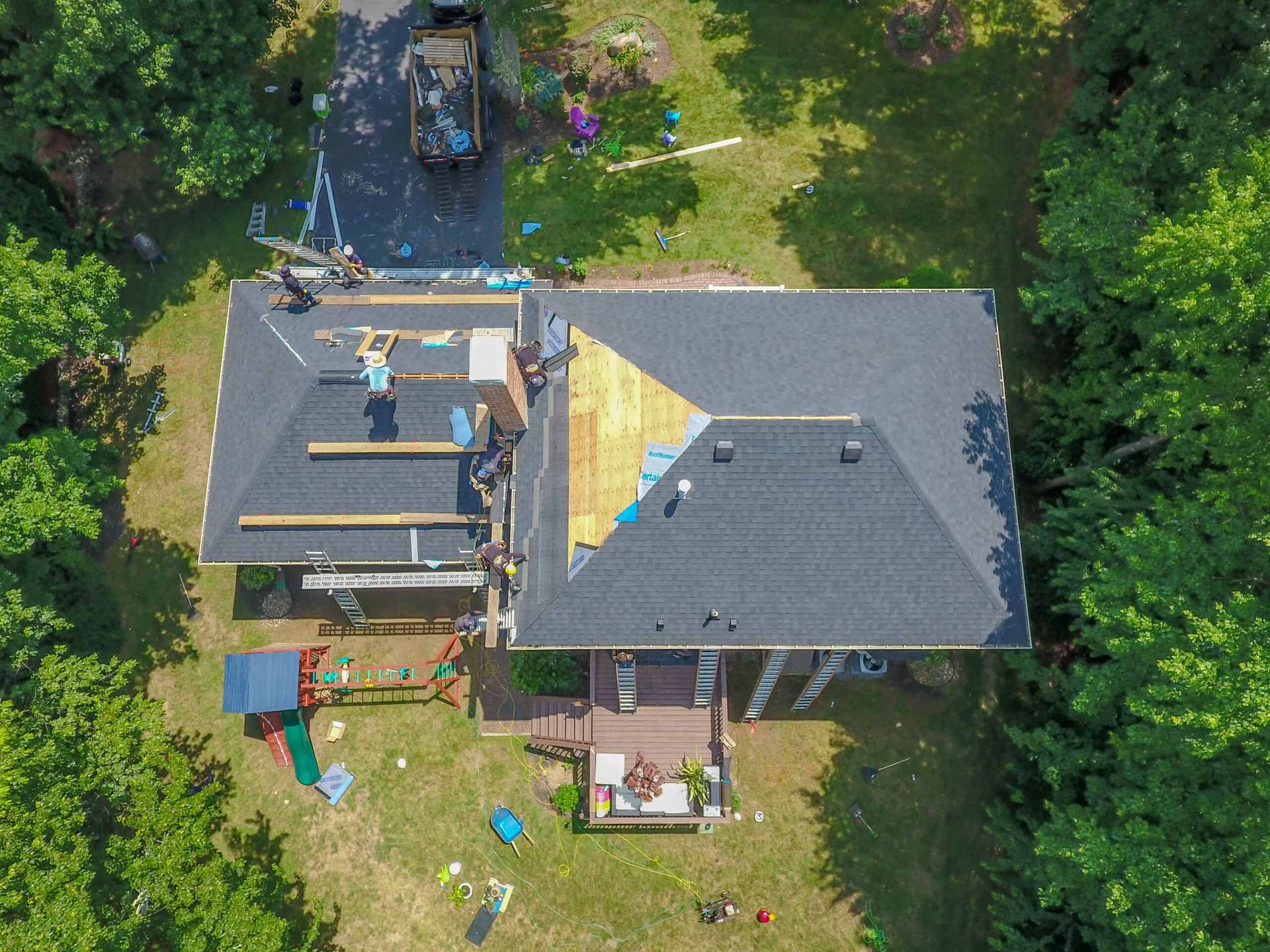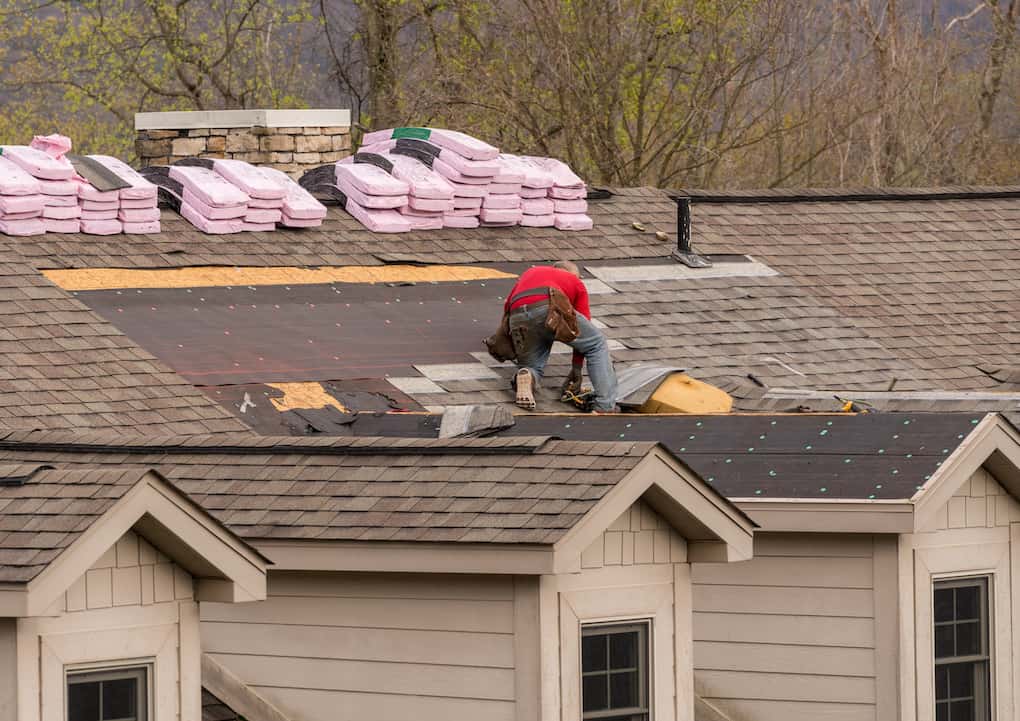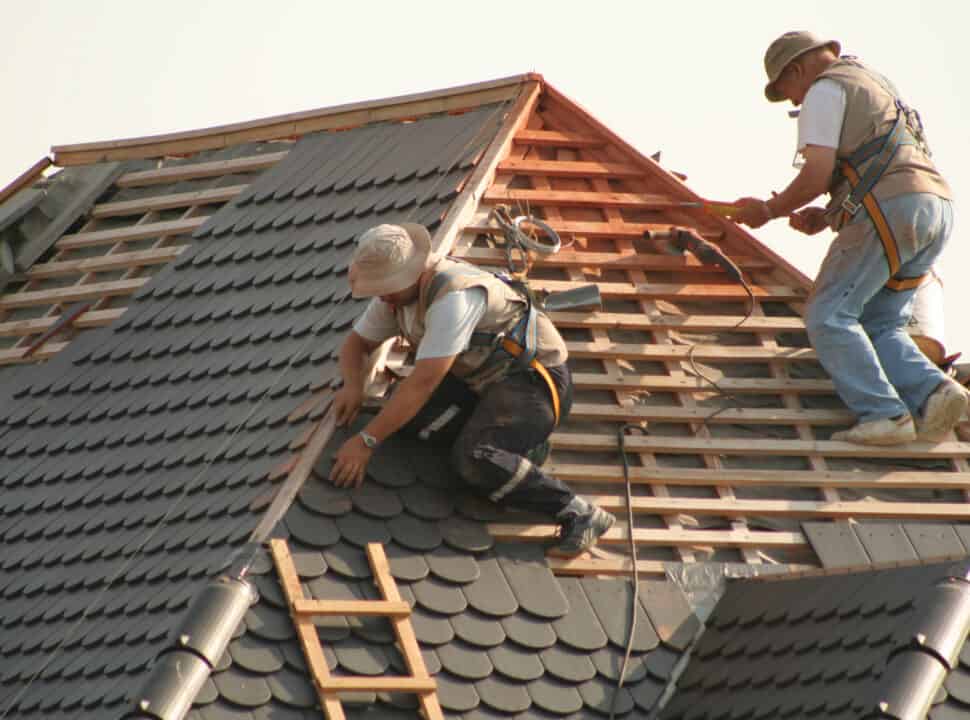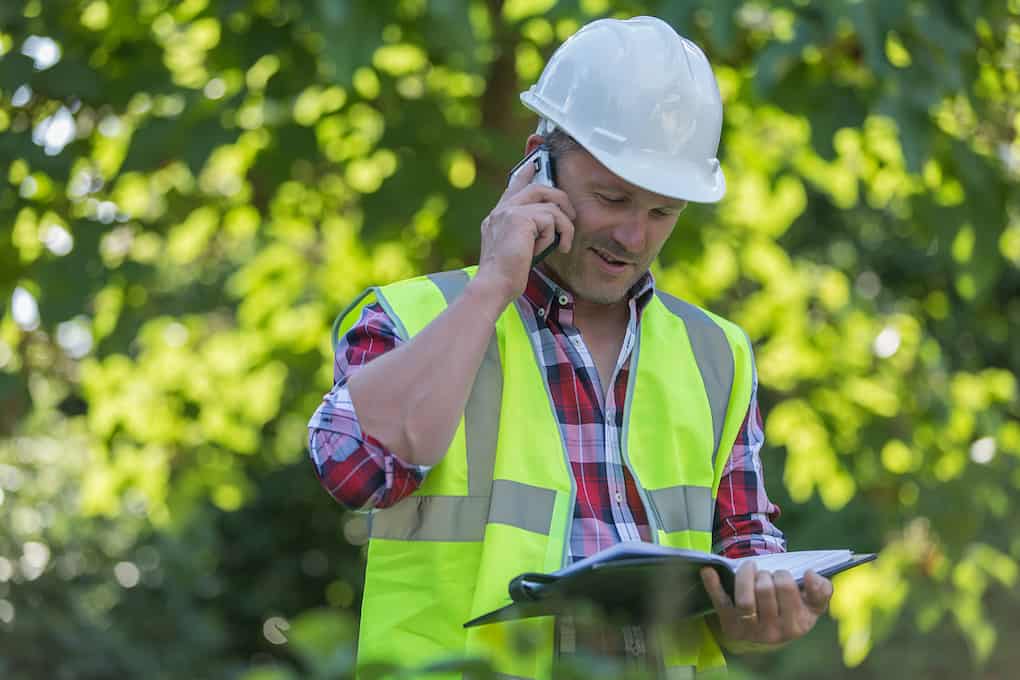When it comes to finding a roofing contractor for your next home improvement project, there are a number of things to consider, such as:
- Are they inline with roofing best practices?
- Is the contractor licensed and insured?
- Do they have a good work history?
- Is their website professional and their customer service exceptional?
These are all important questions to ask yourself when deciding on a roofing contractor, but there are also 10 other contributing factors when it comes to receiving an extraordinary roofing job.

10 Roofing Best Practices For Every New Roof
If you’re a roofer, leave your thoughts in the comment section below about the ten factors that go into an awesome roofing job.
1. Roofing always starts with the full removal of an existing system
There are a few exceptions to every rule, but if you want a quality new roof, you will need to remove the old one.
In this sense, getting a new roof is similar to getting new carpet because you can’t just put new carpet over the old carpet.
The same goes for roofing systems. You must replace your old one in order for the new one to be effective.
A good roofing contractor will not overlay new shingles over the preexisting ones because doing so could void the shingle warranty.

2. Full inspection of decking
A good roofing crew will always have extra sheets of plywood or plank boards to fix troubled areas.
Your subfloor has to be structurally sound and safe, to the point that you can walk on it for the next few years.
3. A good roof is only possible with adequate insulation
If your roofer doesn’t talk about or mention the insulation process during the inspection, you shouldn’t be considering him.
Attics are crucial and part of a good roofing system, so make sure you and your contractor discuss an insulation strategy.
4. Ventilation
Quality roofers know the importance of intakes and venting.
Just how your car engine will overheat without coolant, your shingles will bake if you don’t have enough vents, even if you have a sufficient amount of insulation.
5. Your roofer must be certified with one or two brands and know their rules and accessories
Each brand is a little bit different and has different requirements. If your roofer installs all brands and claims that they are all the same, he probably didn’t do his research and could be a jack of all trades but master of none.
6. A professional roofer will also replace all major accessories and will not try to save or reuse existing vents to save a few dollars
Put it this way:
If your roofer is trying to cut corners to save costs, this is not the type of contractor you want to work with.
Reputable contractors understand the value of new materials and build that into their price to ensure that your home is receiving the most durable products on the market.

7. Your roofer must register the shingle warranty with the manufacturer
Sure, your roofer might be good on a roof, but if they hate paperwork and your roof has issues five years down the road, then good luck in trying to get a warranty claim started.
The sad reality is that your roof likely was never registered with the roofing manufacturer, and thus your warranty will be denied.
8. It is recommended to use accessories of the same brand
The best way to ensure that a roof warranty remains valid is to have all accessories be from the same brand.
Yes, contractors will make a profit from this and your costs could be more, but if your warranty is voided years later, then not using the same brand of accessories will cost you even more money.
It is also key to remember that your contractor must install all accessories according to the manufacturer’s instructions.
9. Good cleanups
Having a good cleanup system in place is extremely valuable.
That’s why Roofing Insights recommends the Catch-All, a unique cleanup system that hundreds of contractors use for their cleanups.
The Catch All operates as a massive net that catches all nails and debris while ensuring that the homeowners’ property is not maimed in the process.
To learn more about the Catch-All, visit their website today!
Doing so can save you the headache of having to deal with damaged property or a homeowner popping a tire on a nail later on.
10. A good roofing company also has to be financially responsible
Many roofing companies are collecting hundreds of thousands of dollars, or even millions in checks. Often, you have to rely on their character and trust that they will manage your money properly.
Many homeowners want to believe that their contractor will pay for labor and materials, but sometimes contractors mismanage money.
Money management skills are an important step that contractors have to master, sometimes even more so than making sure they know how to properly install a roofing system.

Attention To Detail Is Everything
As you can see, there are more things to be aware of than just checking to see if a roofing contractor is licensed and insured. Attention to detail is extremely important.
Comment below if you agree with the points made in this article.
Also, if you’re a contractor who is interested in joining Directorii, apply to become a member by clicking on this link.
If you’re a homeowner looking to back up your next home improvement project with a $20,000 guarantee, find a contractor in your area by visiting Directorii today!
